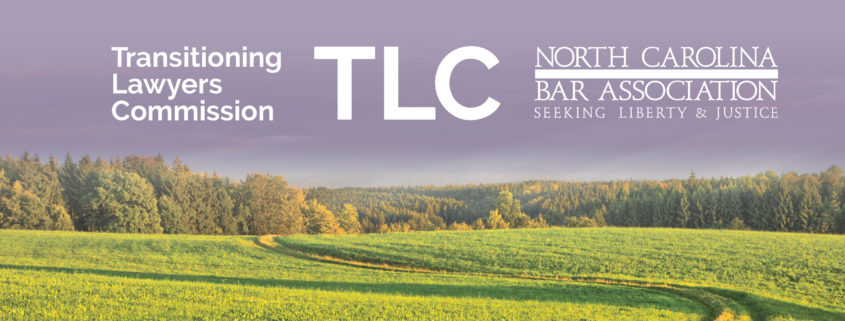The Birds and the Bees and the TLC: What I Wish I’d Known When I Was a YLD Member
 By Mark Scruggs
By Mark Scruggs
Bees are fascinating little critters. Their lifespan is only six weeks. In the spring, they gather pollen to store in their hives. As spring blooms into the summer, bees begin gathering nectar to make honey. As the weather becomes cooler in the fall, they gather sap to caulk the cracks in their hives to prepare for winter. The bees of summer were different from the springtime bees who gathered pollen, and the autumn bees know nothing of summertime and have never experienced a winter. How do they know what to do?
We humans are the same way. While we have some insight into our lives looking backward, we have no real understanding of what lies ahead. We can remember childhood when we knew nothing about the birds and the bees. Many of us were grossed out when we first heard about the mechanics of sex from older kids. Surely our parents did not do that. Surely they are not doing it now! We also remember the social awkwardness of adolescence and the angst of our teenage years. Today, as young lawyers, we remember those developmental stages well. Today, struggling with the time and attention demands of balancing our personal and professional lives, starting families and striving to get ahead in our careers, retirement is the last thing on our minds. While we have contemporaries in the financial world urging us to buy insurance products and invest for the future, the eventualities seem remote.
Unlike birds and bees, we have the ability, at least intellectually, to consider our futures. As remote as retirement might feel, it is never too early to begin thinking about what retirement might look like. At the very least, we can look around and observe how older attorneys are navigating their later practice years and begin formulating a plan for ourselves:
- Whom do we admire among senior attorneys who still are practicing and doing well at it?
- Who is retired and living a life of meaning and engagement that we would like to emulate?
- Who is still practicing who really should not be? How and why do they continue to practice so long when their cognitive abilities and practice skills are failing?
- What will it take, and what can I be doing now, to assure that I will be able to transition from a successful practice to retirement with enjoyment of life, a sense of fulfillment, and financial security?
These are the issues where the Transitioning Lawyers Commission strives to help attorneys.
What is the Transitioning Lawyers Commission (TLC)?
We are members of the North Carolina Bar Association who want to work with lawyers in deciding on the best way to slow down and ultimately retire with dignity and grace. A project originated by the Senior Lawyers Division, one purpose of TLC is to provide confidential assistance and support to lawyers as they wind down their active careers in the law. Involvement with TLC is completely voluntary; TLC has no enforcement capabilities and no connection with the North Carolina State Bar.
When a referral is made to TLC requesting transitional support for a lawyer evidencing cognitive impairment or similar issues affecting the lawyer’s ability to practice law, a team leader (a trained volunteer and experienced lawyer) is designated to work with the lawyer, his colleagues and family, to determine the next best step for the lawyer to protect his reputation, his clients and the profession.
TLC has been designated as a Lawyers Assistance Program (LAP) by the North Carolina State Bar. This designation provides an exemption to team leaders from the duty to report ethical violations to the State Bar. The lawyer and others are therefore allowed to speak freely with the team leader so that an accurate picture of the challenges can be seen and a suitable plan formulated.
But I’m a YLD member; why do I need to know about TLC?
As a younger lawyer, you may come in contact with a fellow practitioner or even a law partner who has begun to exhibit signs of cognitive impairment or some other age-related or medical-related condition that is affecting the lawyer’s ability to practice law. You need to know the resources that are available to you, your firm, and the affected lawyer to address the problem. TLC is one such resource.
It should be no surprise to you that we are an aging population. The U.S. Department of Health and Human Services reports that the 65 and older population increased by 15 per cent between 2000 and 2010 and is projected to increase by another 36 per cent over the next decade. Lawyers are not immune from the “graying” of the profession. The aging of the baby boom generation and increased longevity have resulted in an increased number of lawyers practicing longer than ever before.
The Center for Disease Control and Prevention says age-related dementia, and specifically Alzheimer’s, typically begins to appear in individuals who are 60 and older. Starting at age 65, the risk of developing the disease doubles every five years. The unavoidable conclusion is that as the lawyer population ages and remains in practice, statistically a greater number will experience cognitive impairments, as well as other significant medical problems, that may affect their ability to practice law.
Furthermore, you have an ethical obligation to respond to the mental impairment of a firm lawyer. On July 25, 2014, the State Bar adopted 2013 Formal Ethics Opinion 8 analyzing the responsibilities of the partners and supervisory lawyers in a firm when another firm lawyer has a mental impairment. TLC can be a resource for you and your firm in such situations.
But there’s more . . .
TLC urges younger lawyers to prepare for the unexpected, as well as the expected successful transition to retirement. TLC sponsors continuing legal education programs, webinars and on-line non-CLE videos and other information about such topics as planning for disability or illness that cripples your practice, financial planning, selling a law practice, becoming “of counsel,” care-giving and other topics of importance to younger lawyers.
We have a short video on TLC’s webpage on the North Carolina Bar Association website discussing insurance products that can be a part of planning for the survival or wind-down of your firm in the event of death, disability or serious illness. http://ncbar.org/members/committees/transitioning-lawyers-commission/turning-out-the-lights-video-series/. There is also a short video discussing “tail insurance,” a subject every young lawyer who is considering moving to another firm or perhaps taking a break from the practice of law should understand. Under the “Succession Planning” tab, there are a number of resources to help you put together an emergency plan for you and your firm.
TLC can be your partner in planning for a successful practice and a rewarding retirement. We can also provide assistance if a lawyer in your firm or a colleague seems to be suffering from cognitive impairment that is affecting his or her ability to practice. You don’t have to go it alone.
Forty years from now, after you have navigated a successful law career and are enjoying your golden years, we hope you will look back and remember that you learned about the birds and the bees from the Transitioning Lawyers Commission.
Mark Scruggs is Claims Counsel for Lawyers Mutual Liability Insurance Company of North Carolina, Inc. He serves on the North Carolina Bar Association’s Transitioning Lawyers Commission, working to address issues facing aging lawyers.


